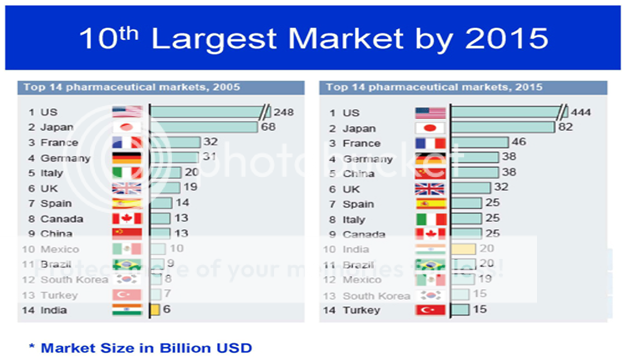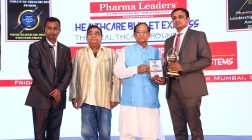Inscrutable Nippon for Indian pharmaIndian firms struggle to crack world’s second-largest drug market even as Tokyo tries to promote use of generics
Japan, the world’s second largest pharmaceutical market, is yet to see any major penetration from Indian drug majors, especially in generics. Except for a few such as Lupin, no Indian drug maker has been able to establish a presence in the $90-billion market.
This is despite the country having a government-funded national health insurance scheme covering every citizen. And, with a series of reforms in 2010 with the intention of expanding the generic drug penetration to 30 per cent of the market by 2013, from 18 per cent in 2010.
A chief executive of one of the top five Indian companies said, on condition of anonymity, “In Japan, genericisation has happened only to the extent of around 50 per cent; in the US, around 95 per cent of the market is genericised. So, a large chunk of the market in Japan still comprises patented products.”
Adding: “Unlike the US FDA (the regulator), which is transparent about its regulations, there is lack of transparency in regulations in Japan. This could be a major challenge.”
Vinod Dhawan, group president, AAMLA (Asia-Pacific, Africa, Middle East & Latin America), at Lupin Ltd, in an interview with Business Standard last month, said: “Entry to the Japan formulations market requires dedicated research and development (R&D), as well as manufacturing capabilities, since regulatory requirements, specifications and sometimes strengths therein are quite different.”
Lupin had established a presence in Japan through acquiring a majority stake in generic pharma company Kyowa Pharmaceutical in 2007. In its second buy, it acquired I’rom Pharmaceutical Co, subsidiary of I’rom Holdings Co, to enter the generic injectables segment. Lupin made the buyout through Kyowa.
“It is a challenge to build this on an organic basis in a market which is not only lucrative but among the fastest growing from a generics standpoint,” added Dhawan. Lupin saw 14 per cent contribution from Japan in its 2012-13 revenue of Rs 9,461 crore; it had 52 per cent growth in revenue from Japan, to Rs 1,304 crore from Rs 860 crore the previous year.
Added Dhawan, “In the first few years, starting 2003-2004, we learnt the market dynamics and then leveraged our R&D and manufacturing expertise to build partnerships in the beginning. The critical success factor was, of course, in using that knowledge to successfully acquire meaningful local assets.”
According to industry experts, the acquisition route is the easiest way of entering the Japanese market, as setting up a subsidiary is not easy. “With the Japanese regulations, the outside player needs to partner with a local company and form a subsidiary where the local firm needs to have majority stake. This makes operations difficult, as most global companies would not like to operate as a minority stakeholder,” said a senior pharma executive.
However, Active Pharmaceutical Ingredient (API) manufacturers such as Ind-Swift Labs, Suven Life Sciences and Dishman Pharma have tied up with Japanese generics producers to tap the market. Generic majors such as Glenmark are also exploring the API market potential. Glenmark’s API manufacturing facility in Ankleshwar, Gujarat, has received approval from the regulatory agency of Japan, the PMDA. Glenn Saldanha, chairman of Glenmark, said: “We however, have no immediate plans of entering the formulations market of Japan but our focus on selling APIs to this market will remain.”
What makes Japan still an attractive generic market is the price realisations. These are significantly higher than in most Western economies. Based on the new target proposed by the Japanese government, the generic market is likely to grow by 30-35 per cent in annual volume terms by 2017 from the current levels, which would create an additional $7-billion opportunity for generic companies over the next three years.










